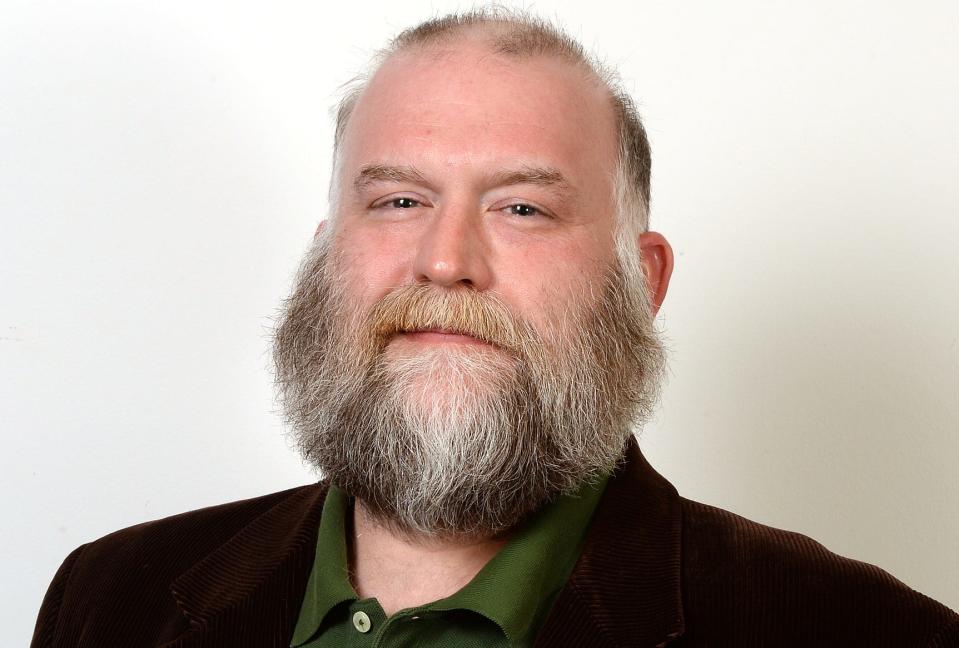David Murdock Column: On the New Year (and final thoughts for 2023)
This time of year, we are being inundated with “year-end retrospectives.” Basically, every media outlet is running stories about what happened in their respective areas in 2023. For example, I just looked over a list of famous people who passed away in 2023 — some of whom I mentioned myself at the time of their deaths, like Gordon Lightfoot and Jimmy Buffett — and perusing that list really got to me.
The celebrity death that shocked me the most in 2023 was that of the actor Matthew Perry, who starred as Chandler Bing on the sitcom “Friends.” He accidentally drowned in his hot tub on Oct. 28 at the age of 54. His death deeply affected me. That sitcom was about people of my age and generation, and Perry’s death seemed almost as if someone I knew personally had passed away.

One thing that always strikes me when looking at such lists of celebrity deaths is that, sometime way in the future, 2023 will also have a list of “famous births.” People born this past year will go on to achieve great things in all fields of human endeavor. Of course, there is no way of knowing who they are just yet.
That’s one of the comforting thoughts I keep in mind as these year-end retrospectives appear — obviously, they usually stress news that distresses — and it didn’t take too much looking in 2023 to find bad news. It was all over the place, it seemed.
However, good news takes some time and patience to find. Somewhere out there in America in 2023, someone wrote the Great American Novel. One candidate for Great American Novel status is “The Great Gatsby” by F. Scott Fitzgerald. It was published in 1925 and wasn’t then regarded as one of Fitzgerald’s best novels. It only began to be better appreciated after World War II, and really wasn’t regarded as a classic for another 20 years after that!
The world of literature is chock-full of similar stories. A favorite recent one is that of the novelist John Williams, who published “Stoner” in 1965 … which only became a major hit around 40 years later! The novel describes the life of a literature professor named William Stoner. I’d never heard of the novel until 2018. Some recent critics have dubbed it “the perfect novel.” I don’t know about that, but it’s one of the best I’ve ever read.
Someone out there made a classic American movie in 2023 that will be cherished by future generations. One doesn’t have to look too far to find examples of movies that were largely ignored during their initial theatrical runs. At some point leading up to Christmas, lots of folks just watched the 1983 movie “A Christmas Story.” I didn’t remember the film at all … until TNT started running it once a year for 24 hours straight from Christmas Eve to Christmas Day in the late 1990s. Nowadays, I can quote several lines from the film.
And the king of all “neglected classics”? “The Shawshank Redemption.” Highly regarded by critics, but not exactly a huge hit with the public when it came out in 1994, that movie is now so well-loved by so many people that it regularly appears at or near the top in lists of the best movies of all time.
Vincent Van Gogh? Claude Monet? Johannes Vermeer? All three great artists were not highly appreciated during their lifetimes. And that’s just a partial list. The list of musicians who were not seen as geniuses until after their death is maybe even longer.
That’s why I hold on to hope, hope for the new year arriving, too. Who knows what wonders we will see in 2024? And what wonders we might not recognize as such for many decades past 2024?
It is difficult, though, to hold on to hope as tough as things seem right now. I completely acknowledge that fact.
But I think back on what I thought would happen when I was younger — and none of my nightmares came true. If experience has taught me anything, it’s that the last line of the first stanza of Henry Wadsworth Longfellow’s poem “A Psalm of Life” seems true: “And things are not what they seem.” Longfellow does not say that “things” are better; he says that they “are not” what they appear to be. That line has sounded in my mind quite a lot the past few years.
What’s really amusing to me about that recurring line is that “A Psalm of Life” is far from being my favorite poem by Longfellow. I much prefer the more circumspect “Mezzo Cammin,” in which he deals with the disappointment of middle age.
However, Longfellow did hit that proverbial nail on the head with the last stanza of “A Psalm of Life”: “Let us, then, be up and doing, / With a heart for any fate; / Still achieving, still pursuing, / Learn to labor and to wait.”
And, to really make my point, Longfellow was probably the most popular American poet during his lifetime, but he’s far overshadowed now by the then relatively unknown Walt Whitman and the completely unknown Emily Dickinson.
That’s why I try to “Learn to labor and to wait.” Every year.
David Murdock is an English instructor at Gadsden State Community College. He can be contacted at murdockcolumn@yahoo.com. The opinions expressed are his own.
This article originally appeared on The Gadsden Times: David Murdock on the New Year, and the one just past

